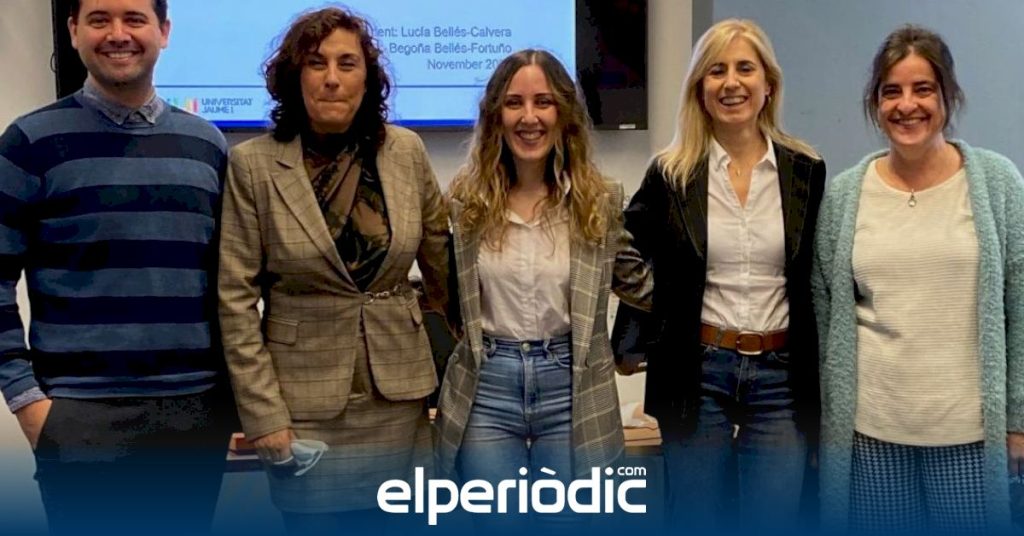PhD student at the University of Jaume I Lucía Bellés Calvera defended her doctoral thesis with an international mention entitled “Multilingual Education: A Conversational Analysis in the Humanities, Social and Health Sciences” and directed by Professor Begoña Bellés, of the Department of English Language Studies.
The study sheds light on the importance of personal marks in the multilingual interaction practices taught in higher education. The evidence can be used in future teacher training programs to support productive content and integrated language learning (CLIL) experiences, which include the acquisition of curricular content through a target language, and effective dissemination of institutional language policies among university students.
The study methodology made it possible to collect a large sample of the multilingual practices that are carried out in UJI classrooms. Data were collected from various research tools: audio-recorded interviews with teachers, CLIL seminars and classes, observation forms, student questionnaires and placement tests.
Interviews with university faculty reveal this group and learners’ concerns about CLIL’s approach, which include English language proficiency, anxiety, and the need for teacher training initiatives. Data obtained from final surveys of students reveal that they are satisfied with their language learning experience, especially in the field of health sciences. Likewise, when attitudinal issues related to learning disciplinary knowledge through a foreign language are dealt with, no objection appears in the fields of tourism and medicine. From these surveys it was concluded that measures should be taken to disseminate institutional language policies.
The notable similarities and differences between social sciences and health sciences are not limited to the interviews, surveys, and placement tests conducted for the purpose of this study, but also to the class interaction. The results indicate that there is no significant gap between CLIL classes and seminars for humanities and social sciences branches. There is a hidden tendency for history educators to produce a wider range of personal scores at CLIL conferences. It has also been shown that meta-discourse traits are more numerous in the health sciences, where communicative exchanges occur at a higher rate. In fact, notable products have been demonstrated by students and teachers in a medicine class.

“Social media evangelist. Student. Reader. Troublemaker. Typical introvert.”


:quality(85)/cloudfront-us-east-1.images.arcpublishing.com/infobae/UXWYDUR7AZHNZOCISYCCM3SM3M.png)
:quality(85)/cloudfront-us-east-1.images.arcpublishing.com/infobae/H6HA6TJTRCI5NXZ4SJTKAMLKLM.jpg)
:quality(85)/cloudfront-us-east-1.images.arcpublishing.com/infobae/U6NINPMRGRHYJFKUXGHD6E72BM.jpg)


More Stories
The Brazilian delegation conducts a scientific-cultural exchange at Biobío managed by Cs. UdeC Biological
Italy bans puppy yoga to protect the welfare of puppies
Educational resources from Sanxenxo reach the University of Southern California’s College of Educational Sciences